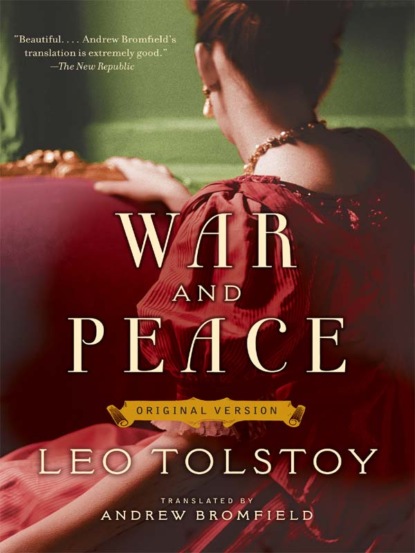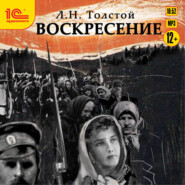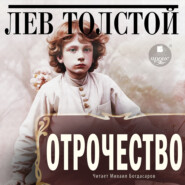По всем вопросам обращайтесь на: info@litportal.ru
(©) 2003-2024.
✖
War and Peace: Original Version
Автор
Год написания книги
2019
Настройки чтения
Размер шрифта
Высота строк
Поля
“I’m not so sure,” said Prince Andrei.
“As I told you, prince, the Austrians have taken us over, no good will come of it.”
Prince Andrei smiled and stepped towards the door, but just at that moment, an Austrian general, obviously just recently arrived, with his head bandaged in a black kerchief and an Order of Marya-Theresa round his neck, hurried into the room, banging the door behind him. Prince Andrei came to a halt. The Austrian general’s tall figure, his wrinkled, determined face and rapid movements were so strikingly consequential and disquieting that everyone in the room involuntarily rose to their feet.
“General-in-chief Kutuzov?” the new arrival said rapidly, with a harsh German accent, glancing about on both sides as he walked without stopping across to the door of the study.
“The general-in-chief is busy,” said Kozlovsky with the sombre briskness with which he always carried out his duties, and he approached the unknown general to block his way to the door. “How shall I announce you?”
The unknown general glanced down contemptuously at the short Kozlovsky, as if amazed that that anyone might not know him.
“The general-in-chief is busy,” Kozlovsky repeated calmly.
The general’s face turned sullen, his lips twitched and began trembling. He took out a notebook, dashed off something hastily with a pencil, tore out the page, handed it to Kozlovsky, walked quickly over to the window, hurled his body into a chair and looked round at everybody in the room as if asking why they were all looking at him. The general raised his head, stretched out his neck and half-turned towards Prince Andrei, who was standing closest of all to him, as though intending to say something, but immediately turned away again and made a strange sound, as though he were beginning to hum something nonchalantly to himself, but the sound immediately broke off. The door of the study opened and Kutuzov appeared on the threshold. In a moment the general with the bandaged head, ducking down as if fleeing from danger, moved swiftly across the room with long strides on thin legs which brought him close to Kutuzov’s face. His own elderly, wrinkled face turned pale, and he was unable to prevent his lower lip from trembling nervously as he uttered the following words in badly pronounced French in a voice that faltered and was too loud:
“You see before you the unfortunate Mack.”
For a few moments, as Kutuzov stood there in the doorway of his study, his broad face, disfigured by wounds, remained absolutely motionless. Then, like a wave, a frown rippled across his face and his forehead smoothed out again; he inclined his head respectfully, closed his eyes and, without a word, allowed Mack to go past him into the room, closing the door behind himself.
The rumour which had been spread earlier, concerning the defeat of the Austrians and the surrender of the entire army at the Ulm, proved to be correct. The members of headquarters staff related to each other the details of Mack’s conversation with the commander-in-chief, which not one of them had been able to hear. Half an hour later adjutants had already been despatched in various directions with orders clearly indicating that the Russian forces, which had so far not seen action, were also certain to encounter the enemy soon.
“That half-crazy old fanatic Mack wanted to fight the greatest military genius since Caesar!” thought Prince Andrei as he went back to his room. “What did I tell Kozlovsky? What did I write to my father?” he thought. “Now it has happened.” And despite himself he experienced a feeling of joyful excitement at thinking of arrogant Austria’s disgrace and that perhaps in a week’s time he would see and take part in an armed conflict between the Russians and the French, the first since Suvorov.
Once he got back downstairs to the room that he shared with Nesvitsky, Prince Andrei put the now unnecessary papers on the table and, holding his hands behind his back, he began walking to and fro across the room, smiling at his own thoughts. He feared the genius of Bonaparte, which might prove stronger than all the bravery of the Russian troops, yet at the same time he was unable to conceive of his hero being disgraced. The only possible solution to this contradiction was that he himself should command the Russian army against Bonaparte. But when could that be? In ten years – ten years that seem like an eternity when they amount to more than a third of one’s life so far. “Ah! Do what duty requires, come what may,” he said, rehearsing to himself the motto that he had chosen. He called for his servant, took off his uniform coat, put on his smoking jacket and sat down at the table. Despite life on the march and the cramped room that he shared with Nesvitsky, Prince Andrei, just as he had been in Russia, was as fastidious as a woman, careful of his own person, neat and tidy. Nesvitsky knew that nothing could make his room-mate more angry than disorder among his things, and Bolkonsky’s two tables, one a writing-desk that was set, like his desk in St. Petersburg, with bronze writing accessories, the other arrayed with brushes, soap-dishes and a mirror, were always arranged symmetrically and without a single speck of dust. Since his departure from St. Petersburg and, most importantly, since parting from his wife, Prince Andrei had entered a new era of activity and seemed to be reliving his youth. He read and studied a lot. Campaign life gave him a good deal of free time, and the books he had acquired abroad opened up new interests to him. The greater part of these books were works of philosophy. Apart from its intrinsic interest, philosophy was for him one of those pedestals of pride which he loved to ascend in front of other people. Although he had many different pedestals from which he could look down on people – birth, connections, wealth – philosophy represented for him the one from which he could feel superior even to people such as Kutuzov, and feeling that was essential for Prince Andrei’s peace of mind. He picked up Kant’s latest work, which was lying on his table with half its pages cut, and began reading. But his thoughts were far away, and he constantly imagined that he saw before him his most cherished dream – the banner of the Bridge at Arcole.
“Well, brother, I owe you a bottle,” said the immense, fat Nesvitsky as he entered the room, accompanied, as always, by Zherkov. “What do you make of this business with Mack?”
“Yes, he must have just spent an unpleasant quarter of an hour upstairs,” said Prince Andrei.
(They had had a wager. Prince Andrei had asserted that Mack would be routed, so he had won.)
“I owe you a bottle,” said Nesvitsky, unbuttoning his uniform coat, which squeezed his plump neck. “But what a dinner we’ll have today, brother! Wild goat, I got a fresh one, and turkey with chestnuts.”
“I told you Mack would get stuck in your teeth,” said Zherkov, but his jest was not appreciated. Prince Andrei glanced round coldly at him and turned to Nesvitsky.
“What have you heard, when are they setting out?” he asked.
“They have sent for the second division to be moved,” Zherkov said in his ingratiating manner.
“Ah!” said Prince Andrei, then turned away and began reading.
“Right, that’s enough of your philosophising,” cried Nesvitsky, throwing himself onto his bed and panting for breath. “Let’s talk. How I laughed just now! Imagine it, we’d just come out, and there was Strauch walking along. You should have seen the capers Zherkov cut in front of him.”
“That’s all right, I was saluting an ally,” said Zherkov, and Nesvitsky began laughing so hard that the bed creaked under him.
Strauch, the Austrian general sent from Vienna to oversee the supply of provisions to the Russian army, had for some reason become Zherkov’s favourite victim. Zherkov mimicked him with deadly accuracy and every time he encountered him, Zherkov would stand to attention, pretending to be afraid of him, and at every opportunity he could find, he would begin speaking with him in broken German, making himself out to be a naïve fool, to Nesvitsky’s great delight.
“Ah, yes!” said Nesvitsky, turning to Prince Andrei. “By the way, about Strauch. There’s an infantry officer here who’s been waiting a long time to see you.”
“What officer?”
“Remember, they sent you to investigate the case, he stole a cow or something from the Germans.”
“What does he want?” said Prince Andrei, frowning and twisting the ring on his small white hand.
“He’s a pitiful sort, come to petition you. Zherkov, what was his name? Well, what was it he said?”
Zherkov pulled a face and began imitating the officer.
“I … didn’t, not that, not at all … the soldiers … they bought the beast, because the owners … The beast … the owners … the beast …”
Prince Andrei got up and put on his uniform jacket.
“Yes, do hush it up somehow,” said Nesvitsky. “My God, how pitiful he is.”
“I do not wish either to hush it up or to be unfair to anyone. I was sent, and I reported what had happened. I never take pity on scoundrels nor do I laugh at them,” he added, glancing at Zherkov.
He went out to speak with the officer, and explained haughtily that he had no personal business with him and did not wish to have any.
“But after all, you know yourself, your … prince,” said the officer, evidently unsure about the right way to address this adjutant: he was equally afraid of abasing himself and of not being polite enough. “After all, you yourself know, prince, that we’d been on the march for days, the soldiers hadn’t eaten, so how could I forbid it … judge for yourself …”
“If you require my personal conviction,” said Prince Andrei, “then I can tell you that in my opinion, pillaging is always a serious offence, and there is no punishment severe enough for it in the country of one’s allies. But above all, please understand that there is nothing I can do; my job is to report to the commander-in-chief what I have found. I cannot lie for you.” And, with a smile at this odd idea, he bowed to the officer and left to return to his room. In the corridor, he saw General Strauch and the member of the Hofkriegsrat walking ahead of him. Nesvitsky and Zherkov were coming the other way, towards them.
There was enough space in the broad corridor for the generals to pass the two officers, but Zherkov, pushing Nesvitsky to one side with his hand, said in a breathless voice:
“They’re coming! They’re coming! Move over, make way! Please, make way!”
The generals were walking along with an air that suggested they wished to avoid bothersome expressions of respect. Zherkov’s face was suddenly transformed by a stupid smile of joy, as if he were unable to restrain it.
“You excellency,” he said in German, advancing and addressing the Austrian general. “Please permit me to congratulate you.” He inclined his head and began scraping first one foot, then the other, in a clumsy fashion, like a child learning to dance.
The general who was a member of the Hofkriegsrat glanced sternly at him but, noticing the seriousness of the stupid smile, felt obliged to grant him a moment of attention. He lowered his gaze, to show he was listening.
“Allow me to congratulate you on General Mack’s arriving quite unhurt, with only a little bump here,” Zherkov went on, smiling radiantly and pointing to his own head.
The general scowled, turned away and began to walk on.
“Gott, how naïve!” he said angrily after a few steps. Nesvitsky embraced Prince Andrei with a laugh and pulled him towards their room. Ignoring the laughter, Prince Andrei followed Nesvitsky inside, and going over to where Zherkov’s cap was lying on his table, he knocked it to the floor.
“Yes, did you see that face?” Nesvitsky said through his laughter. “It was marvellous! Just a little bump here … ha, ha, ha!”
“There’s nothing funny about it,” said Prince Andrei.
“Nothing funny? Why, his face alone …”
“Nothing funny. I am no great friend of the Austrians. However, there are proprieties that this villain may not be aware of, but which you and I should observe.”
“Do stop that, he’ll come in any moment,” Nesvitsky interrupted, taking fright.

















